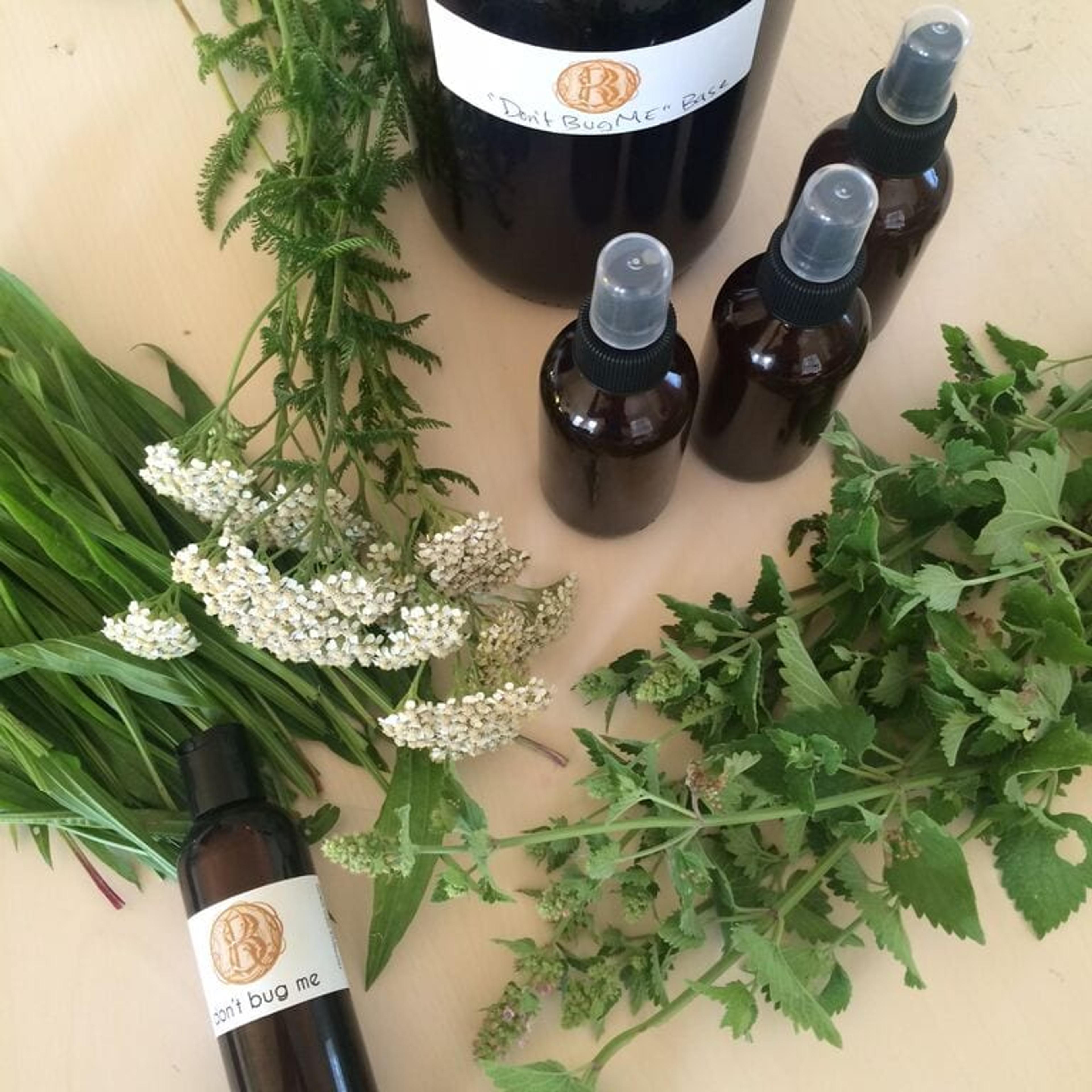Don’t Bug Me: Herbal Spray and Bite Remedies
Guest Blogger
| 3 min read

A “Pure Michigan” summertime is made up of camping trips, picnics, and summers by the lakeshore surrounded by family and friends.
But usually unwelcome visitors to the festivities include the pesky mosquitos, ticks and spiders – unavoidable in our forests and backyards.
To fully ensure you will stay bite free, cover the skin up in lightweight fabrics. Tech wear options for the lake and woods are now increasingly more affordable and available to extend the enjoyment of being in the outdoors. To prevent the pesky (and potentially infectious) tick bites, be sure to wear shoes, socks and tuck long pants into the socks while hiking in the woods or through tall grasses.
While there are many commercial chemical bug sprays on the market to help deter and even soothe bothersome bug bites, it’s best to go chemical-free when at all possible. There are plant-based and natural alternatives to helping keep the bugs away and the itching at bay. Consider making your own blends of herbal bug repellant!
Plants helpful for deterring mosquitoes include yarrow, catnip, lavender, and lemon grass. View a recent segment on WZZM Take Five talking about these plants, or order “Midwest Foraging” to identify these plants in the wild.
Burdock & Rose’s “Don’t Bug Me” Herbal Bug Deterrent & Skin Soother

For herbal tincture formula, mix equal parts tincture:**
- Plantain
- Chickweed
- Yarrow
- Catnip
Combine herbal tincture formula. Add one part formula to one part distilled water (50/50 mix) to a spray bottle. Add essential oils of lavender or lemongrass as preferred, approximately 15 drops per four-ounce bottle. Can be spritzed on clothing and skin to deter bugs, and also can be used topically to soothe bites.
**Plants can be foraged in the wild and prepared as tinctures or purchase tinctures pre-made from reputable sources like Mountain Rose Herbs.
Got bites? Plants helpful for soothing bites, scratches and itches topically include plantain, chamomile (as a tea to apply topically, or tea bags added to a soothing bath), chickweed, and calendula. Other natural remedies to relieve scratching include baking soda baths and applying zinc oxide on the scratches (especially to dry wet, weepy rashes). Avoid using oil-based creams and lotions on bites as that can increase irritation.
In the event of suspected West Nile virus (influenza like symptoms), visit your doctor but also consider an herbal protocol like echinacea, elderberry, boneset, yarrow, elderflower and medicinal mushrooms like reishi and maitake to support the peripheral immune system while fighting the virus. In the event of a suspected tick bite that may carry Lyme’s Disease (symptoms include a bull’s eye marking, rash, fever, dizziness, blurred vision), visit your MD immediately to seek antibiotic treatments.
If you enjoyed this post, you might also like:
Photos courtesy of the author and Tony Donnelly.

Photo credit: Jonathan Stoner
Lisa M. Rose is an herbalist, forager, urban farmer, and writer. With a background in anthropology and a professional focus on community health, she has gathered her food, farming, and wild plant knowledge from many people and places along a very delicious journey.
Beyond the Great Lakes, Lisa’s interest in ethnobotany and herbal medicine has taken her across the United States and into the Yucatan, mainland Mexico, Nicaragua, and Brazil to study plants, people, health, and their connection to place. When she is not in her own gardens or kitchen, Lisa can be found in the fields and forests, leading foraging plant walks and teaching classes on edible and medicinal wild plants. She forages for her own family, herbal apothecary, and community herbalism practice with her favorite harvesting companion—her dog, Rosie.





